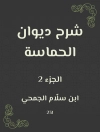D. H. Lawrence’s ‘Look! We Have Come Through!’ is a profound exploration of human relationships and existential introspection, articulated through his distinctive lyrical style. Written in the aftermath of World War I, this collection of poems reflects Lawrence’s concerns with the complexities of love, identity, and the search for personal truth amid a rapidly changing world. The work intricately weaves a tapestry of emotional depth and sensuality, often embracing the tumultuous interplay between nature and spirit, thereby situating itself within the modernist literary tradition that sought to redefine human experience in the wake of societal upheaval. Lawrence, a pivotal figure in early 20th-century literature, drew upon his own rich tapestry of experiences, including his tumultuous childhood and the impacts of industrialization, to inform his writing. The author’s assertive rejection of conventional social norms and his quest for individual authenticity can be traced through his life experiences and philosophical explorations, which undoubtedly influenced the themes present in this collection. His keen observations of the human condition resonate throughout the poems, offering a raw and unfiltered examination of emotional states. ‘Look! We Have Come Through!’ is recommended for readers seeking not only literary beauty, but also a deeper understanding of the human spirit in times of crisis. Lawrence’s evocative language and insightful examination of personal and collective struggle invites readers into a reflective journey, making this collection a timeless piece essential for both literary enthusiasts and those contemplating the essence of connection and existence.
Circa l’autore
D. H. Lawrence, born David Herbert Lawrence (1885-1930), is renowned for his contributions to literature, with a prolific output that extends to novels, short stories, poems, plays, essays, travel writing, and literary criticism. Lawrence’s style is characterized by an exploration of the complexities of human psyche, sexuality, and the instinctual drive for personal freedom that often clashed with the social norms of his time. He delved into the human condition, capturing the struggles between the individual and society, and the impact of industrialization upon nature and human relationships. ‘Look! We Have Come Through!’ is a collection of poems written by Lawrence, first published in 1917. This work is an introspective account of Lawrence’s own life, and particularly of his relationship with his wife, Frieda. The poems traverse emotional landscapes and personal growth, reflecting the intimate journey of his marriage amidst the turmoil of World War I. Themes such as love, struggle, and hope are prevalent throughout this collection, embodying the author’s belief in the redeeming power of human resilience and intimacy. Known for his controversial works like ‘Lady Chatterley’s Lover’ and ‘Sons and Lovers, ‘ Lawrence often faced censorship and misrepresentation. Nevertheless, his literary legacy endures, marking him as a significant figure in the Modernist movement and an enduring subject of study for scholars of English literature.












